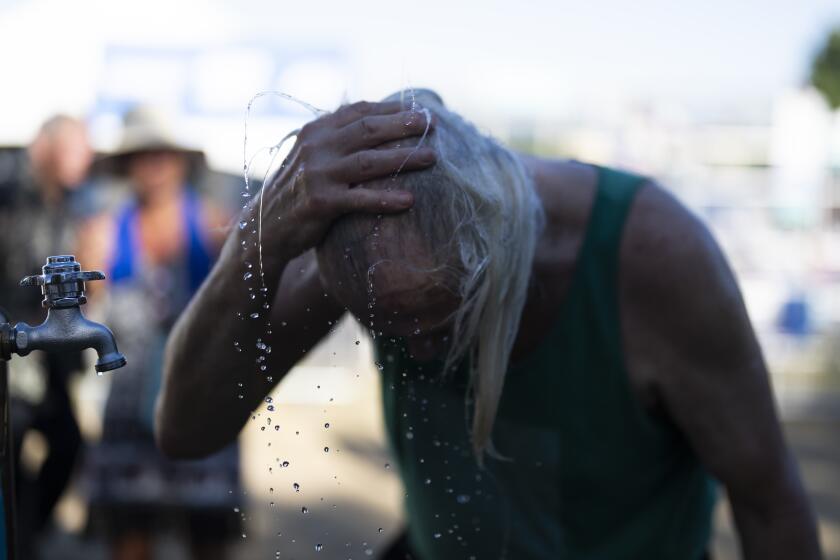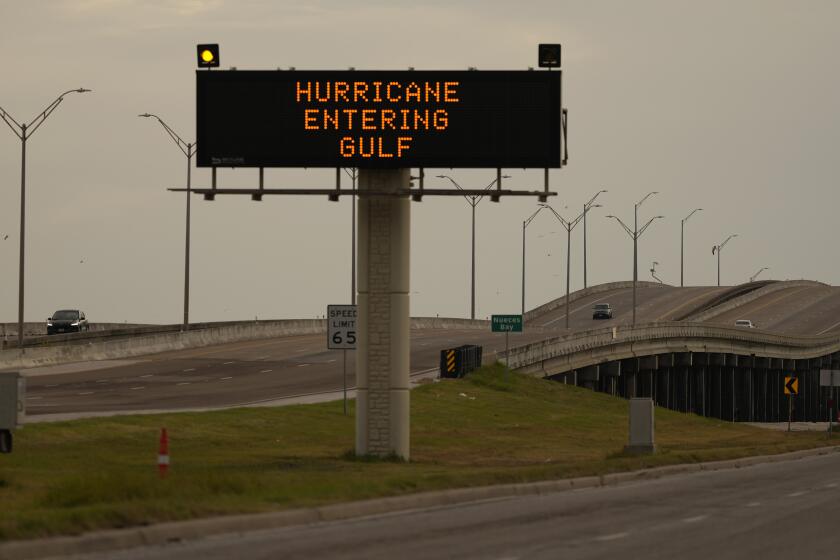Life begins in a homeless shelter
At 5 weeks old, with a crown of dark hair and big blue eyes, Anastasia Garcia is one of the newest faces of the economic crisis. She was born homeless.
“When we are lucky enough to be settled, we will tell her that things were not always as easy as you may think,” said Angela Garcia, 26, laying the infant down in a crib at the Broward Outreach Center in Pompano Beach, Fla. Garcia shares the cramped room with her family, including her husband, David Henson, and their two older daughters, ages 2 and 6.
In Fort Lauderdale, Demali Staple’s youngest child, 4-month-old Jabari, is another recession baby. When Staple finishes work as a landscaper, she picks up Jabari and his brother, Alvash, 3, at a day-care center and they return to a room at Covenant House, a private Christian ministry that operates youth shelters in several U.S. cities.
“There are days when I want to give up,” said Staple, 21, a single mother. “But I don’t want my boys to go through what I went through. So I push myself.”
Throughout South Florida, social service agencies report sharp increases in the number of infants and very young children being sheltered in homeless centers.
The reasons might be no more complicated than the sagging economy. As jobs disappear, families and single moms who once were able to provide for their children no longer can.
A recent study by the National Center on Family Homelessness found that 1 in 50 American children is homeless.
For pregnant women and newborns, health concerns are magnified by poverty and homelessness. Studies show that homeless children are more likely than others to have asthma and ear infections, and suffer from emotional and behavior problems.
“It is not ideal in any way, shape or form to have a baby in a shelter,” said Patricia Mantis of Broward County’s Coalition to End Homelessness.
Priscilla Garrett, 25, had been living with her mother until family problems led her to the Broward Outreach Center four months ago. On June 18 she gave birth to an 8-pound, 2-ounce girl, and she and her daughter recently returned to the shelter.
“I see myself as going through a transitional phase right now,” said Garrett, whose last job was as a store clerk.
Years from now, she said, she will explain to her child that she was “born in a place where friends were, with people who helped you and me.”
For struggling parents, shelter living with an infant means access to free diapers, some clothing and even a stroller. But quarters are tight, a bathroom is shared with dozens of others, and there is no baby-sitter.
Weekdays, Alisa, 6, goes to camp while Garcia stays in the shelter’s family wing with her baby and 2-year-old Alexis, irrepressibly active. If Garcia can find day care for her two youngest, she plans to begin looking for a job.
“We never thought this would happen,” Henson, 31, said of the couple’s spiral into homelessness that accelerated when he lost his construction job in January. “Really, I am shocked that I let us get this far down.”
Together for seven years, Garcia and Henson had lived in a rented apartment. When they no longer could afford it, they moved in with Garcia’s mother. Henson worked day jobs.
After a fruitless bus trip to find work in Texas, where Garcia’s father lives, the couple returned to Broward County this spring, broke.
Henson recently found a job in a Home Depot warehouse, and Broward Outreach Center caseworker Shirley Favali said the couple is on track to qualify for a move to transitional housing, where they can stay rent-free for up to 18 months.
“I think they are really trying,” Favali said. “They are motivated.”
Staple also is trying. “I am saving all the money I can,” said Staple, who catches a 7 a.m. bus so she can drop the kids off at day care and get to work by 8.
With the baby in her arms and Alvash bouncing on a couch, Staple looked around a lounge-like play room in the former motel that Covenant House runs as a family center.
“This is not the life I imagined, being in this position,” she said. “I’d still like to be a nurse, or get my GED and go into the military. But, look, I’m here now.”
--
More to Read
Start your day right
Sign up for Essential California for news, features and recommendations from the L.A. Times and beyond in your inbox six days a week.
You may occasionally receive promotional content from the Los Angeles Times.






